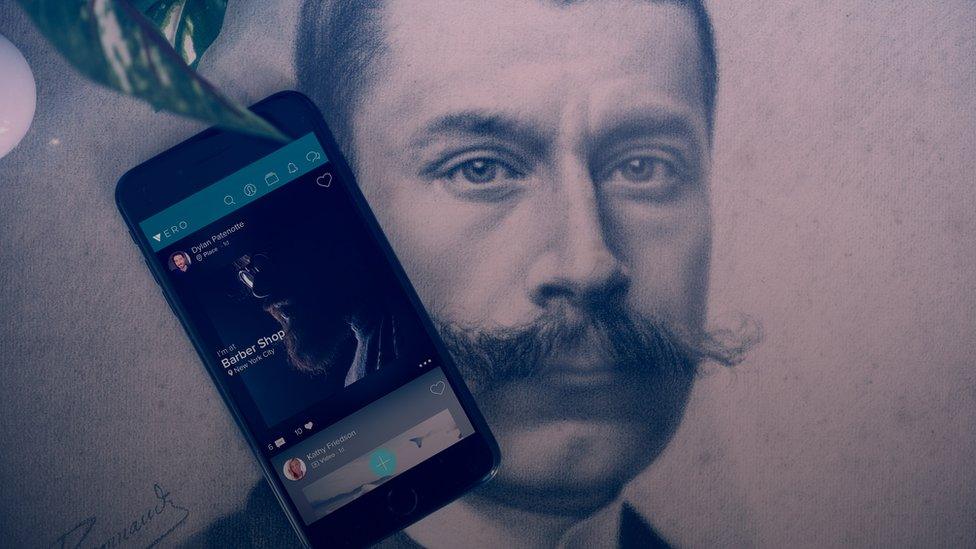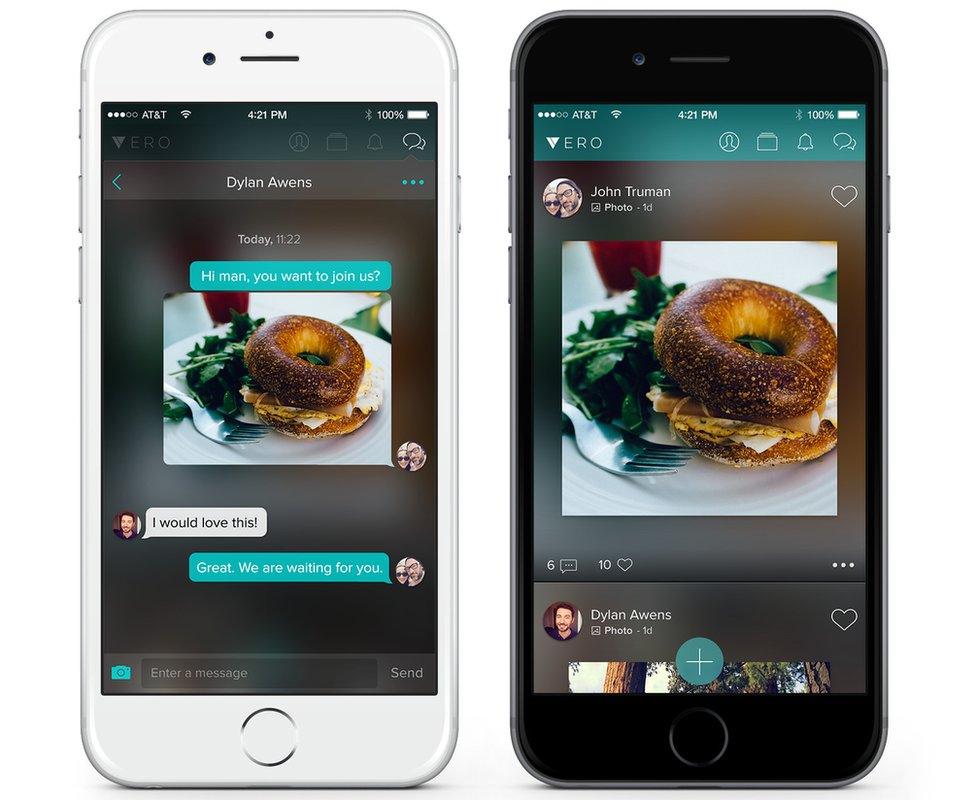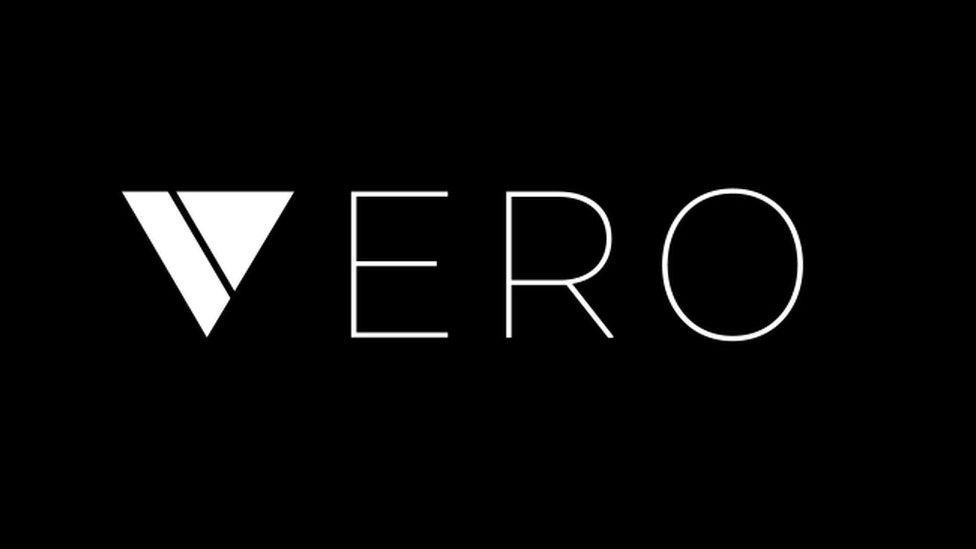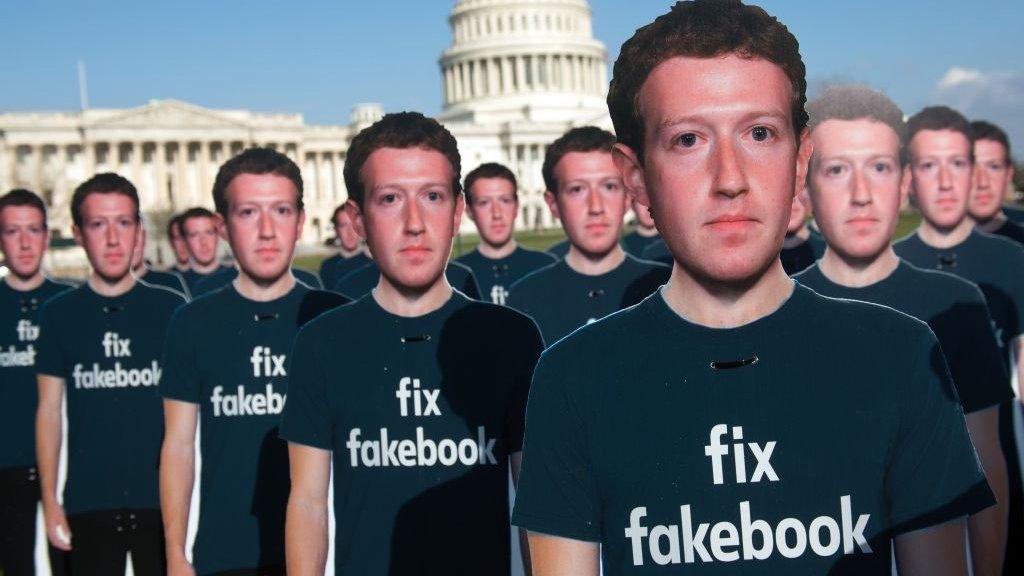Ad-free social network Vero to charge subscription fees
- Published

The social network has pledged to stay free of adverts
Vero, which launched as an ad-free alternative to other social networks, is to start charging for access.
Fees will be levied on any new members who join the image-led social network,
But Vero's existing five million users will retain free membership in return for having helped build the network.
Vero has so far been funded entirely by its founder, Saudi-born billionaire Ayman Hariri. And he said the subscription would cost the equivalent of “a couple of cups of coffee a year”.
Fees would be charged from the middle of 2019 at the latest, Vero said.
But it was committed to remaining ad-free and, unlike larger rivals, did not harvest user data and did basic data analytics only to ensure the site was working well.
“We are not against ads but in order to be competitive you need to gain so much [insight] into users, their personality, their wants and likes et cetera – it’s a line we don’t want to cross,” Mr Hariri told BBC News.
“We are very clear about our intention.”
High profile
Although it eschews ads, brands and influencers are able to have a presence on Vero and the site gets a 5% cut of any sales made directly via the platform.
However, any brand using Vero is not able to actively promote its content to those who do not choose to follow it.
In addition, other influencers cannot repost or share material directly into their own timeline, unless it is in the form of a screenshot.
The network resembles Instagram, being heavily image-driven, and lets users share six categories of content:
photos
links
music
movies
books
places
Individuals can categorise each member of their own networks as close friends, friends, acquaintances or followers and decide who sees what content.
The community is subject to human moderation and users can report anything inappropriate or that breaks the site's rules.
An audience of five million users is inevitably going to be easier to supervise than, say, the 126 million people who regularly post on Twitter, arguably one of the smallest of the big platforms, but Mr Hariri is confident that his team can scale to cope if Vero expands.
He said Vero would be less likely to be used to deliberately spread misinformation or fake news because all users would be traceable as a result of their subscription payments.
And it would also be impossible for state-sponsored or politically motivated groups to take out advertising in the way they had done elsewhere.
The question is, after years of using social media for free and despite the data scandals that have dogged the giants such as Facebook, will people be prepared to pay?
“People didn’t realise the cost of ‘free’,” Mr Hariri said.
“There are so many ‘gotchas’ – data mining, gaining insights about you that are beyond your imagination and selling them on.
"We’re the only ones taking a stand and building an alternative.”

The network revolves around images and messaging
The network has attracted some high-profile names – Gwyneth Paltrow’s brand Goop has a presence, along with GQ editor Dylan Jones and singer KT Tunstall.
It is not entirely free of controversy. In 2017, Mr Hariri issued a statement via Vero following a scandal surrounding the former construction conglomerate Saudi Oger, a family business of which he had been vice-chairman.
In 2015, Saudi Oger was found to have stopped paying migrant workers or maintaining the camps where they lived.
Mr Hariri said he had left the company in 2013 and sold his stake the following year.
“I am and will remain greatly saddened by the suffering that the employees of Saudi Oger experienced and are continuing to experience,” he said at the time.
- Published27 February 2018

- Published21 February 2019
- Published12 February 2020
